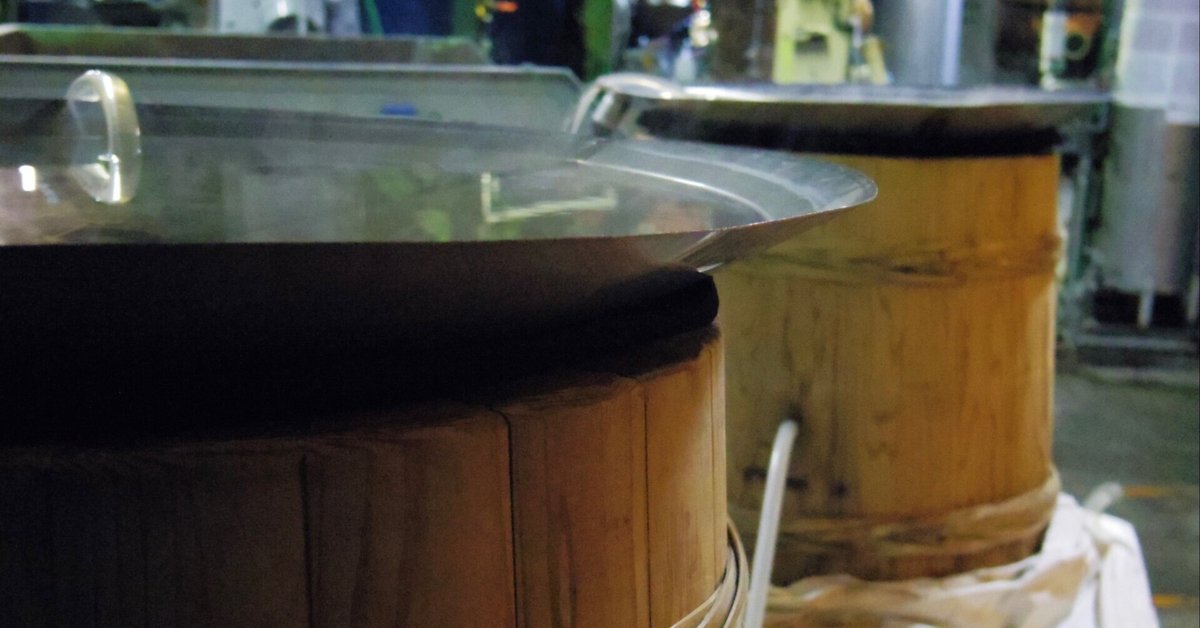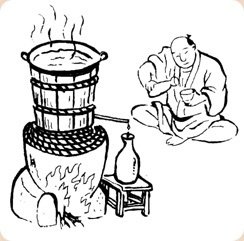
About Kabutogama Distillation -Our Specialty-
The kabutogama distillation
The kabutogama distillation method was originally developed from the Muromachi to Edo Period, 14-18th century, and was widely used until the late 19th century.

This apparatus was named after the kabuto, a warrior helmet, because the shape of the coolant tray (the top part made by metal) resembles an upside-down helmet on the kama (kettle).
The restored Kabutogama at Oishi shuzo distillery
While this method of making shochu requires a lot of time and workforce. Hiromoto, the fifth president of the Oishi Shuzo Distillery, has revived its use to create genuine artisan-style Shochu.
Hiromoto used to work as an great engineer before he back to the distillery. He is full of curiosity and has an interest in everything.
Since he became the president, He has read many books about Shochu and leaned the history. One day he found the Kabutogama in a old book, and Hiromoto deided to restore the old-style still pot to make special Shochu at the Oishi shuzo distillery.
Then he started drawing the blueprint by himselves. He completed his work after repeated trial and error after several years.

How it works?
Our kabutogama technique imbues the shochu with a hint of Japanese cedar absorbed from the cask, and the concentrated rich flavor of genuine sweet potato shochu.
To maiintain the high quolity and genuine clavor of Shochu obtained by such methods, we remains small, alloing us the time and space to be both experimental and discriminating about every aspect of Shochu making.

A boiler pipe sends steam to the bottom of the distillation apparatus
Moromi, a mixture of fermented materials such as sweet potatoes and rice malt, is held inside here
The steam rises up through a stainless steel kettle that holds moromi (a mixture of fermented ingredients such as sweet potatoes and rice malt) covered by a wooden box
Steam rises up through a Japanese cedar cask, adding the aroma of Japanese cedar to the shochu
The tray of coolant water on the top cools the steam. The tray is cone shaped and points down, collecting distilled unprocessed shochu at its tip. (The tray looks like an upside-down warrior helmet [kabuto])
Distilled unprocessed shochu is collected at the tray’s tip and drips through a pipe

Our products using Kabutogama
You will find our product using the Kabutogama at our website (EN/Chinese).
*Our online shop is available only in Japanese at the moment.

The first brand of our product distilled by Kabutogama.
The calligraphy for the bottle and the photo : by Kotaro Hachinohe
